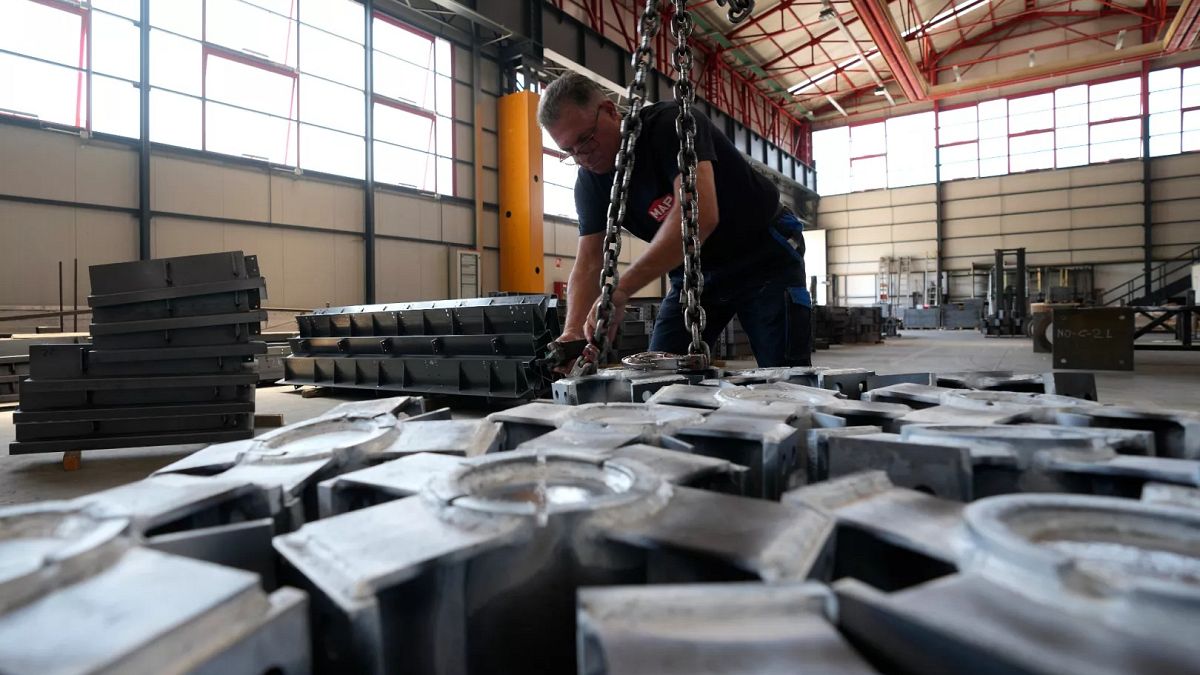Businesses across the EU will see certain obligations eased to help them prosper and contribute to Europe’s competitiveness – at least that’s what the European Parliament has promised.
The European Parliament aims to reduce reporting requirements on sustainability and human rights, as lawmakers on Monday voted to water down the European Union’s corporate due diligence rules.
According to a vote taken by MEPs on the Legal Affairs Committee, only companies hired by the EU last year with at least 5,000 employees instead of 1,000 and annual sales of 1.5 billion euros instead of 450 million euros will be obliged to comply with EU due diligence laws. Members of the Judiciary Committee voted 17 in favor and six against.
EU corporate due diligence laws require companies to check their supply chains for questionable environmental and labor practices to avoid disasters like the Rana Plaza garment factory in Bangladesh, which collapsed in 2013 and killed more than 1,000 people.
After the bloc’s corporate due diligence law was adopted in May 2024, it sparked a backlash from several business operators who said it was burdensome and hurt the bloc’s competitiveness.
Pressure from the US government amid ongoing trade talks is also seen as a key factor in the EU’s decision to scrap sustainability rules.
As a result, in February the European Commission proposed a so-called omnibus simplification, aimed at reducing reporting obligations under EU sustainability laws such as the Corporate Sustainability Due Diligence Directive (CSDDD) and the Corporate Sustainability Reporting Directive (CSRD).
Simplification for greater predictability
Swedish MEP Jorgen Woborn (EPP), who is in charge of the parliamentary due diligence file, said the vote meant predictability for European companies.
Mr Woborn led parliamentary submissions with an iron fist as centrist MPs threatened to side with the far right unless the left made concessions to reach a compromise, leading to the resignation of Lara Wolters (Netherlands/S&D), who was co-leading negotiations on the bill.
Lobbying for the bloc’s sustainability rules has been intense, with nearly 50 European companies, led by Total Energy and Siemens, calling on German Chancellor Friedrich Merz and French President Emmanuel Macron to “abolish” the bloc’s corporate due diligence rules.
US oil and gas giant Exxon Mobil is also heavily lobbying both US lawmakers and EU institutions to loosen these rules, the Center for the Study of Multinational Enterprises claimed.
Anne Mettler, former European Commission director general and vice president for Europe at Breakthrough Energy, a network of organizations founded by US tech mogul Bill Gates to accelerate the transition to clean energy, regretted the lack of support mechanisms for growing companies after EU governments struck the first deal in the summer.
“The only options are punitive (systems) that impose additional responsibilities on ‘big’ companies, including additional compliance and complex governance,” Mettler said.
“But to add insult to injury, we first made our companies dangerously dependent on ‘cheap’ Chinese products, and now we are demanding a seamless supply chain through[the EU’s corporate due diligence law],” she added.
But not everyone agrees that simplifying key rules will hurt competitiveness.
‘False dichotomy.”
Former European leaders, including Finland’s Sanna Marin and the EU’s Josep Borrell, were among the signatories of a letter calling on EU countries to abide by the EU’s sustainability rules, rejecting the “false dichotomy” between sustainability and social responsibility, efficiency and competitiveness.
“Weakening and postponing sustainability rules comes at a price we cannot bear. Sustainability is not a burden. Burdens are not sustainable,” said Enrico Giovannini, a former Italian minister under Mario Draghi and Enrico Letta, who also signed the letter.
Swedish law firm Cirio said the European Commission’s proposal to simplify sustainability provisions is inconsistent with EU law because it does not provide any impact assessment. This claim is supported by a preliminary legal analysis by Bardon Avocatz commissioned by the nonprofit organization ClientEarth.
Audrey Chango, trade and investment policy coordinator at NGO Climate Action Network Europe (CAN), said Monday’s vote was a “clear victory for big oil”.
“With the implementation requirements abolished, all that remains is greenwashing red tape,” Changoe said.
He added: “EU lawmakers have lost sight of their democratic obligations and the reality of climate change, siding with fossil fuel giants while ignoring the majority of EU citizens calling for stronger climate action.”
While the report, which launches an inter-agency consultation, maintains mandatory climate plans and a relatively robust due diligence framework for companies, raising the company size threshold does not improve the civil liability regime and represents a significant setback for law enforcement and corporate accountability.
After Monday’s vote in parliament, lawmakers will likely need to approve the decision at a plenary session in Strasbourg, scheduled for October 20. Once the full House has voted, negotiations between the Board, Congress and committees begin.
Euronews has contacted ExxonMobil for comment.








